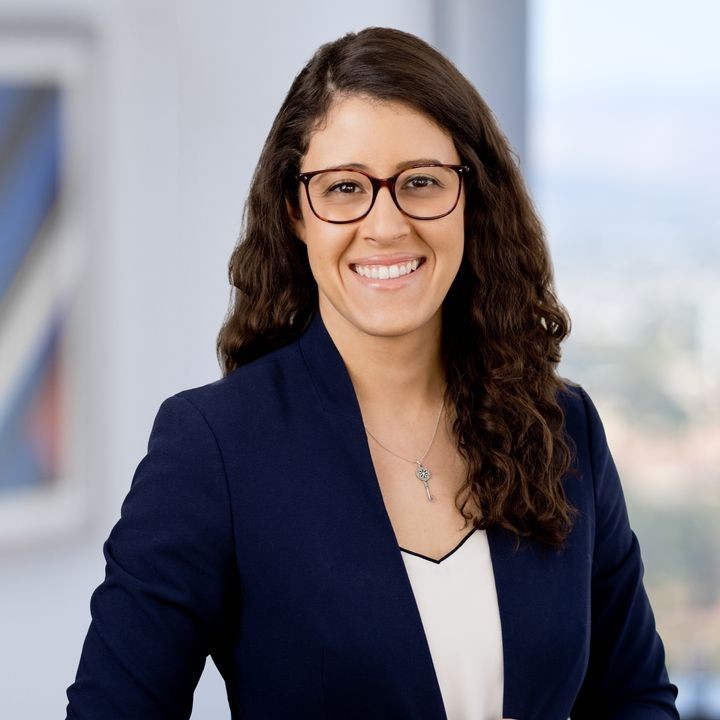Full Throttle Ahead: DOT and State AG Partnership to Bolster Federal Aviation Investigations Capability
Client Alert | 5 min read | 04.23.24
There are very few issues that can unite Republican and Democratic State Attorneys General in today’s polarized political environment. Aviation is one of those issues.
Last week, a bipartisan coalition of eighteen state attorneys general (State AGs) and U.S. Department of Transportation (DOT) Secretary Pete Buttigieg announced the “Airline Passenger Protection Partnership,” a program that could potentially significantly expand DOT’s investigatory and enforcement oversight over airlines’ and ticket agents’ compliance with aviation consumer protection laws and in effect, deputizes State AGs to make assessments that federal law assigns exclusively to DOT. The partnership also creates a new fast-track system prioritizing misconduct cases from State AGs that allege unfair or deceptive airline practices.
Key Takeaways From This Alert
- DOT, which has played the primary role in aviation consumer protection, now has a co-pilot in State AGs that will provide it with an influx of resources and support in investigation airline practices in consumer protection.
- Industry can expect an increased number of investigation letters from DOT for potential violations of aviation consumer laws.
- Industry should closely monitor potential legal challenges to this partnership.
The partnership is memorialized in signed Memoranda of Understanding (MOUs) with each participating State AGs office to ensure that the State AG and DOT’s Office of Aviation Consumer Protection (OACP) closely collaborate on complaints involving unfair or deceptive practices by airlines and ticket agents. This is particularly impactful because historically airlines were not legally required to respond to State AG inquiries. More on that later. According to DOT, the MOUs incentivize airlines to be responsive to State AGs and enable the use of federal and state resources and expertise to protect the rights of the flying public. Only time, and the number of consumer complaints against airlines that State AGs receive, will tell how AG’s respond and whether their priorities will align with DOT’s priorities.
As outlined in the MOUs, DOT and State AGs will work together to do the following:
- Investigate airline complaints for unfair or deceptive practices:Under the MOU, State AGs will investigate the airline complaints they receive to make preliminary determinations as to whether airlines are potentially violating federal aviation consumer protection requirements.
- Ensure airlines cooperate with state investigations:The MOU creates a formal mechanism for State AGs to report airlines to DOT for failure to respond to requests for information as part of a state investigation into a complaint.
- Create a fast-track action system to prioritize misconduct case referrals:When a State AG makes a preliminary determination that an airline has violated the law, the MOU establishes a fast-track process for referring the matter to the DOT for priority review and, in appropriate instances, enforcement action.
- Share access to consumer complaint database:As part of the MOU, DOT will provide State AGs with access to its new, modernized consumer complaint system to support DOT’s enforcement efforts surrounding referrals from the State AGs.
This partnership aligns with the past efforts that the Biden-Harris Administration has put into regulating the aviation sector. For instance, in March 2024, the administration announced a $110 million bipartisan infrastructure law funding improvements to safety and efficacy at 71 airports. The Administration is also focused on improving aviation more broadly by focusing on improvements to the air traffic control sector. Some might call this partnership another example of the “whole-of-government-approach” the Administration has been utilizing to tackle various issues. Should we see a change of administration in the 2024 election, the existence of this partnership will likely be called into question.
What’s almost certain is that OACP, which is currently an office of about 40, will be able to flex much more investigatory and enforcement power by partnering with the eighteen other State AG offices and pooling resources. While we wouldn’t be surprised to see an increase in cases and enforcement actions against airlines in the near future, even with State AG support on investigations, DOT would still need to play a leading role in ultimately enforcing any potential violations – a task that requires finite DOT energy and resources.
In addition, although the MOU contains a disclaimer that it is not intended to conflict with existing law (Article 6), we may see legal challenges to the partnership in the context of future enforcement actions or otherwise. The Airline Deregulation Act of 1978 expressly preempts states from enacting or enforcing laws “related to a price, route, or service of an air carrier” and the U.S. Supreme Court has made clear that DOT is the primary consumer protection authority overseeing airlines. Given DOT’s position as the primary consumer protection authority, it is likely that the partnership will not disrupt DOT’s positions as the chief “pilot”, with the State AGs serving as the co-pilots, so to speak.
The partnership is memorialized in signed MOUs with Attorneys General from California, Colorado, Connecticut, District of Columbia, Illinois, Maine, Maryland, Michigan, Nevada, New York, New Hampshire, North Carolina, the Northern Mariana Islands, Oklahoma, Pennsylvania, Rhode Island, the United States Virgin Islands, and Wisconsin. Seven more states have expressed their intent to participate: Delaware, Massachusetts, Minnesota, Oregon, Tennessee, Vermont, and Washington.
If you have any questions regarding the issues discussed in this alert, please reach out to any of the attorneys named below.
Crowell & Moring’s transportation lawyers have spent more than four decades helping clients navigate the regulatory, litigation and other legal landscapes on land, in the seas and in the skies. Learn more about our multidisciplinary transportation team at https://www.crowell.com/en/services/industries/transportation and our aviation practice, which includes a former senior DOT aviation enforcement lawyer, at https://www.crowell.com/en/services/practices/aviation. Subscribe to our aviation and transportation related client alerts at https://www.crowell.com/en/subscribe.
Crowell & Moring’s State Attorney General practice helps clients navigate state attorney general investigations and lawsuits. Members of our State Attorneys General practice are widely recognized for handling high-stakes enforcement matters and have strong relationships with state and federal regulators. Learn more about this multidisciplinary team at https://www.crowell.com/en/services/practices/white-collar-and-regulatory-enforcement/state-attorneys-general. Subscribe to weekly updates on recent state attorney general actions at https://www.stateagblog.com/.
Contacts
Insights
Client Alert | 3 min read | 03.02.26
Clinical trial sponsors and all other stakeholders involved in conducting commercial clinical trials of investigational medicinal products (IMP) in the UK.
Client Alert | 4 min read | 03.02.26
Client Alert | 3 min read | 02.27.26
Client Alert | 6 min read | 02.27.26





